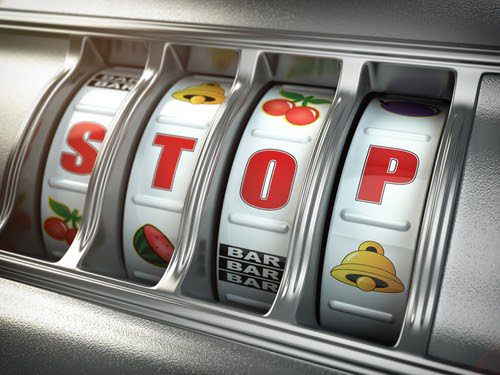In the context of gambling, Self-Exclusion is exactly what it sounds like — it’s a way for people to voluntarily exclude themselves from gambling. In the State of New Jersey, you can voluntarily exclude yourself from all gambling activities, including both online and in-person casinos, or you can self-exclude from strictly online gambling sites. But with an ever-increasing number of gambling sites being introduced each year — both legal and illegal — developing effective Self-Exclusion methods may be a serious challenge as we advance further into the digital age.
Take this quick quiz to see how much you know about New Jersey’s Self-Exclusion Program — then take it again after reading the blog, and compare your scores!
How Does Self-Exclusion Work Online?
If you want to voluntarily exclude yourself from all state-regulated gambling sites, the New Jersey Division of Gaming Enforcement can help you do so for a minimum of one year, five years, or even the rest of your life. Once you submit a registration form online or in person, you are prohibited from participating in all legally authorized and regulated internet related gambling in New Jersey — including betting for sports in Monmouth, NJ, online — for the selected timeframe. There’s no doubt that this method is helpful to many people, but is it enough for individuals who are dealing with disordered gambling problems?
Obstacles to Self-Exclusion in the Digital Age
Self-Exclusion is an excellent system, but it has one inherent flaw: It is state-enforced, which means it only prohibits individuals on the Self-Exclusion list from wagering at state-regulated casinos and gambling sites. Sure, people on the self-exclusion list will be restricted from betting on esports in Atlantic City — But what about offshore virtual casinos, underground sportsbooks, and other obscure, unregulated activities such as skin gambling? Additionally, what is stopping someone from Trenton, NJ, who is on the Self-Exclusion list from simply taking a five-minute drive over the bridge into PA to gamble legally on their smartphone? It’s clear that there are some steep obstacles to developing a more effective Self-Exclusion system in the digital age.
How Can Self-Exclusion Be Improved?
This is where things get tricky, because the primary methods of “getting around” New Jersey’s current Self-Exclusion system involve illegal gambling, which the government is already supposed to prevent, and crossing state lines to gamble legally, which the government can do nothing about. With that being said, there is one potential solution that can address the digital gap in New Jersey’s Self-Exclusion system — privately-owned self-exclusion software that blocks all forms of online gambling. There are now various forms of private self-exclusion software available to consumers who want to block all forms of internet gambling — legal and illegal. These software tools may be useful to individuals who are struggling with problem gambling on the internet.
Self-Exclusion Not Working for You? Call 800-GAMBLER
If you or someone close to you is registered on the New Jersey Division of Gaming Enforcement’s Self-Exclusion list, but have still been able to access gambling sites or casinos — regulated or not — call 800-GAMBLER today to reach our confidential helpline. Together, we can discuss possible solutions, helping you find the support, treatment, and hope you need to overcome problem gambling.



